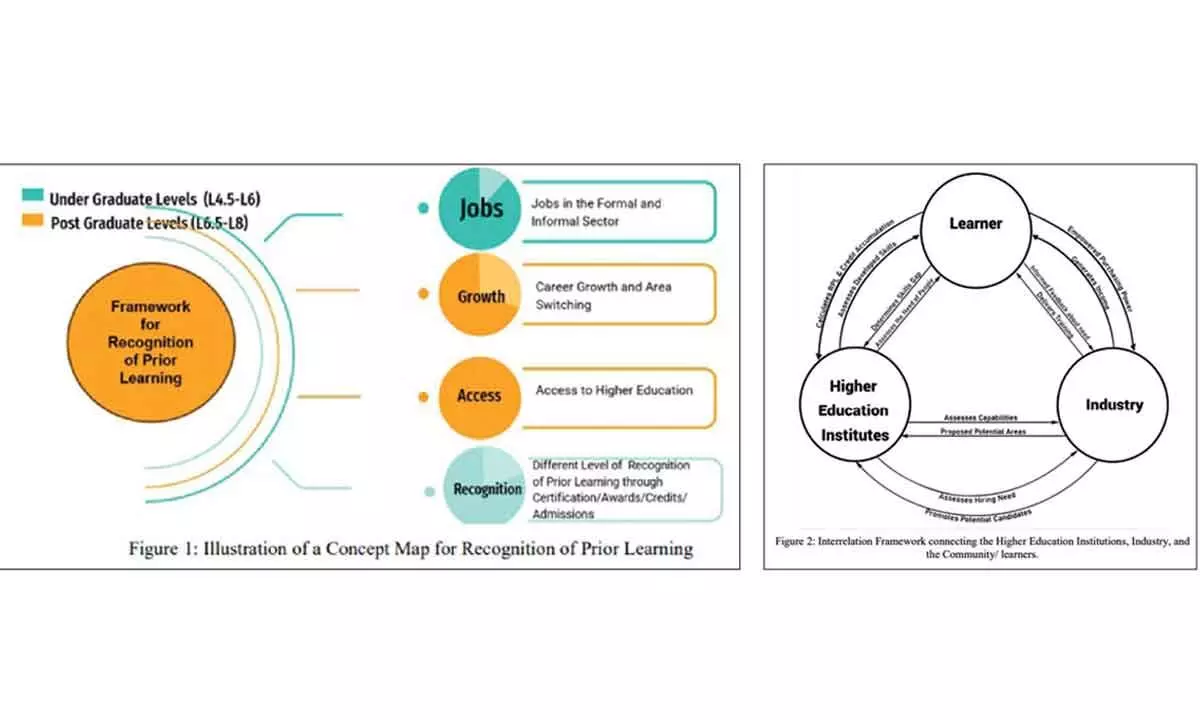UGC issues draft guidelines for RPL

The UGC draft guidelines say that the goal is to encourage HEIs to critically create and evaluate their policies, processes, and SOPs while ensuring high quality and standards in RPL across the country
Hyderabad: The University Grants Commission (UGC) has issued draft guidelines for the Recognition for Prior Learning (RPL) which is designed as a framework aligned with the National Credit Framework (NCrF). It gives a broad minimum framework with the basic principles to help Higher Education Institutions (HEIs) and Universities navigate the complexities of recognising prior learning in a standardised manner and with full quality assurance. The processes and broad framework given are to encourage the HEIs to develop their own set of detailed Standard Operating Procedures (SOPs) by way of discussion and consultation with all the stakeholders in line with the National Education Policy (NEP) and National Credit Framework (NCrF).
The UGC draft guidelines say that the goal is to encourage HEIs to critically create and evaluate their policies, processes, and SOPs while ensuring high quality and standards in RPL across the country. In turn, it allows each HEI to customise the framework, in accordance with the unique needs of its stakeholders. At the same time, to promote a consistent yet adaptable implementation of the RPL across the country.
By outlining general principles of good practice in quality assurance, the guidelines promote reflection and discussion within institutions.
Further, the draft guidelines stress key considerations for RPL Assessment Centres (RPLACs) at HEIs when developing or refining their approach to accrediting prior learning and suggesting improvements to current practices. "RPL Assessment Centres are typically associated with Awarding Bodies (AW). Given their broad scope, these guidelines cater to a diverse audience within the higher education system," it said. Further, administrators can use the guidelines to validate institutional policies against fundamental principles. On the other, the academic staff can supplement institution-specific documentation with insights from the framework, informing their roles as educators, programme designers, and assessors. Higher education institutions, which will serve as enablers for implementing RPL, will develop their policies, procedures, and practices for recognizing prior learning, reflecting their organizational structures, goals, and objectives within the broad framework mentioned in the guidelines.
Highlighting the importance of the RPL, UGC Chairman Prof M Jagadesh Kumar, said, "We must address the challenges faced by India's large informal workforce, which requires formal education and career progression opportunities. Recognition of Prior Learning (RPL) is integral to the vision of The National Education Policy (NEP) 2020." Further, RPL allows individuals to gain formal recognition for skills and competencies acquired through informal, non-formal, or experiential learning. Through RPL, such individuals can access higher education, earn formal qualifications, and improve their employability.

